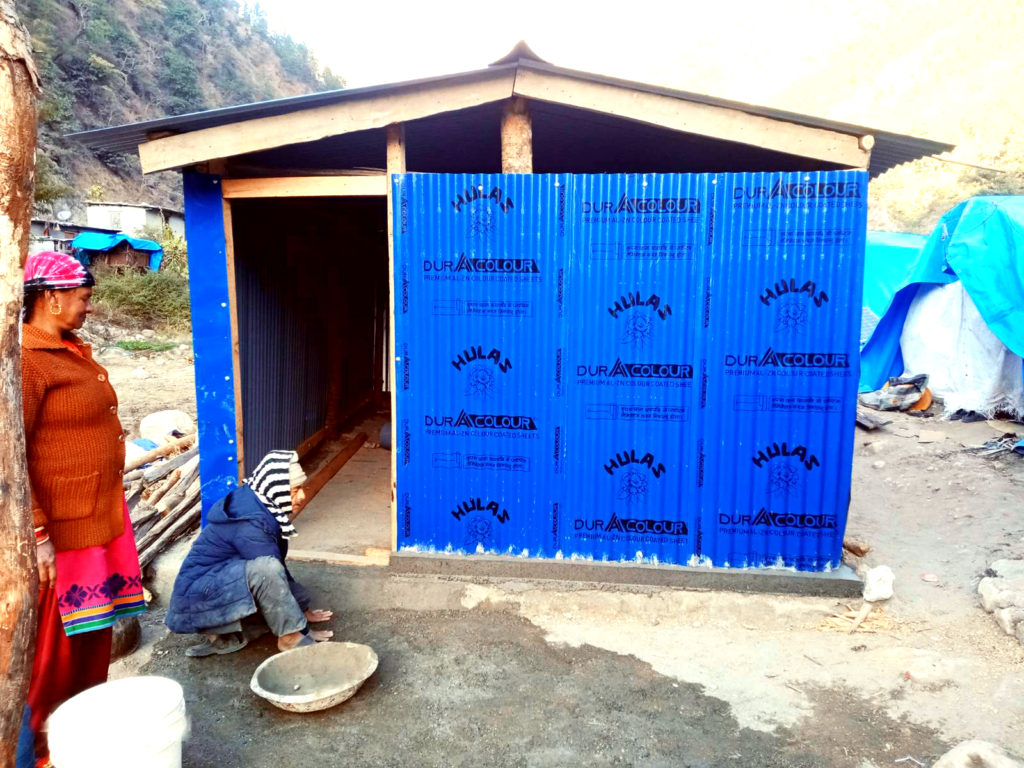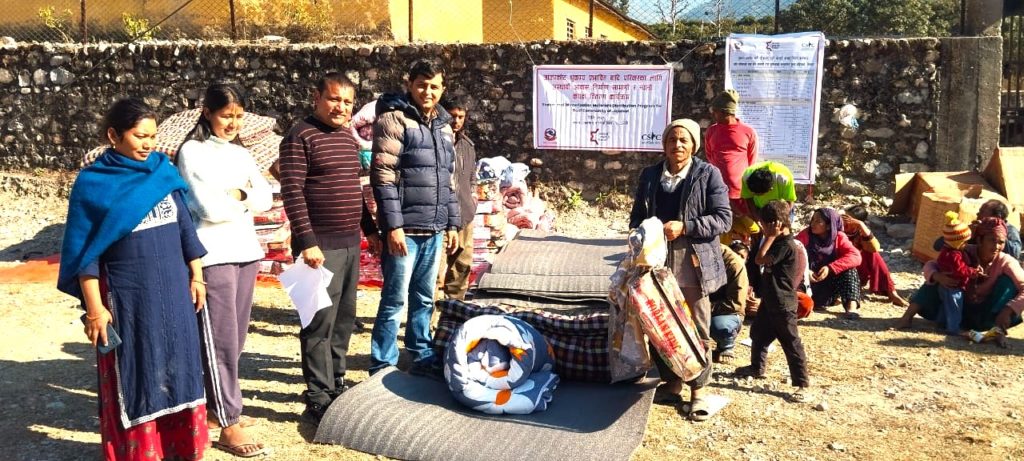In November 2023, a powerful earthquake measuring 6.4 magnitude struck Nepal, impacting areas in the Jajarkot and Rukum West districts of Karnali province. The epicenter was near Ramidanda of Barekot Rural Municipality, north of Khalanga. Responding swiftly, CSRC initiated aid efforts, focusing on the landless and marginalized Dalit community in Jajarkot. The project area was chosen as Badi Community in Nalgad Municipality as it was the most affected area but didn’t receive any relief as the settlement is in difficult topography.
Badi community in Nalgadh is a landless Dalit community that migrated from India in the 14th century and settled in the western part of Nepal and made their living by making and selling madal (Nepali musical instrument) clay pots, performing dance and songs during festivals and wedding ceremonies and as they live near the bank of the river they are also fishermen, as an impact of modernization their traditional occupation of making Nepali instrument is on extinct which has increased their socio-economic vulnerability
A total of 29 families currently reside in the Badi community in Nalgadh Municipality-7, Jajarkot. Unfortunately, all their houses have been completely damaged. The data was collected from, the CSRC team showing that the community has a total population of 117 people, comprising 59 females, 58 males, and 17 children under the age of 5. Fortunately, no casualties or injuries have been reported. Out of the 29 households, 4 belong to the Chettri community, and they do not own any land. However, these 4 households have purchased 2 Aana land in the same area, but it is not sufficient for their living needs.
While visiting the community, we observed that they were actively preparing for the installation of a tarp shelter. However, the community needed transitional shelters that come with toilet facilities, as well as orientation and counseling services from a multi-hazard perspective. This includes educating the community on how to prepare and respond to potential natural disasters such as earthquakes, floods, fires, and health hazards. Similarly, the debris from fully damaged houses may pose a risk to children playing in the area. Also, the community needed debris management support.

After assessing needs through community consultation, CSRC, with support from World Jewish Relief (WJR), provided 29 winterization and shelter kits and financial assistance. Each kit contained galvanized CGI sheets, while households received 15 thousand rupees for cash-for-work programs and 20 thousand rupees for livelihood support like fishing nets, livestock, or agricultural tools.
Additionally, CSRC aided single women and an elderly male head of households who couldn’t construct shelters, ensuring they had safe housing by mobilizing masons within the same municipality. This comprehensive assistance addressed both immediate shelter needs and economic vulnerabilities caused by the earthquake.

Dale Badi, one of the beneficiaries states “CSRC provided the material like a galvanized iron sheet, latch, etc and field staff was always available for implementation and necessary assistance in temporary shelter construction. The representative of CSRC worked for the beneficiary’s approval process from the ward office, daily monitoring of the housing, and construction work, the organization provided financial assistance for cleaning up the destroyed structure and construction of the house.” Hence, due to the continuous commitment by the community members, organization, and local level, construction for 29 temporary housing was completed within 15 days of starting.
Sharma Kumari, 66, is an elderly single woman. Her son migrated to Rukum Karnali for work. Kumari says “I am unable to leave this place as the land has been bought after a lot of hardship”. Even three months after the earthquake, I was still living in a tent, I didn’t have money to make temporary shelter, and I was unable to bring the wood myself. My son asked me to come to live with him, but I have emotional attachments with this place as, I have been here ever since I remember so I want to live here as much I can.” CSRC provided the cost of laborers to construct Kumari’s house. She says she is grateful for the financial assistance to build her house.







